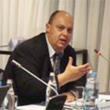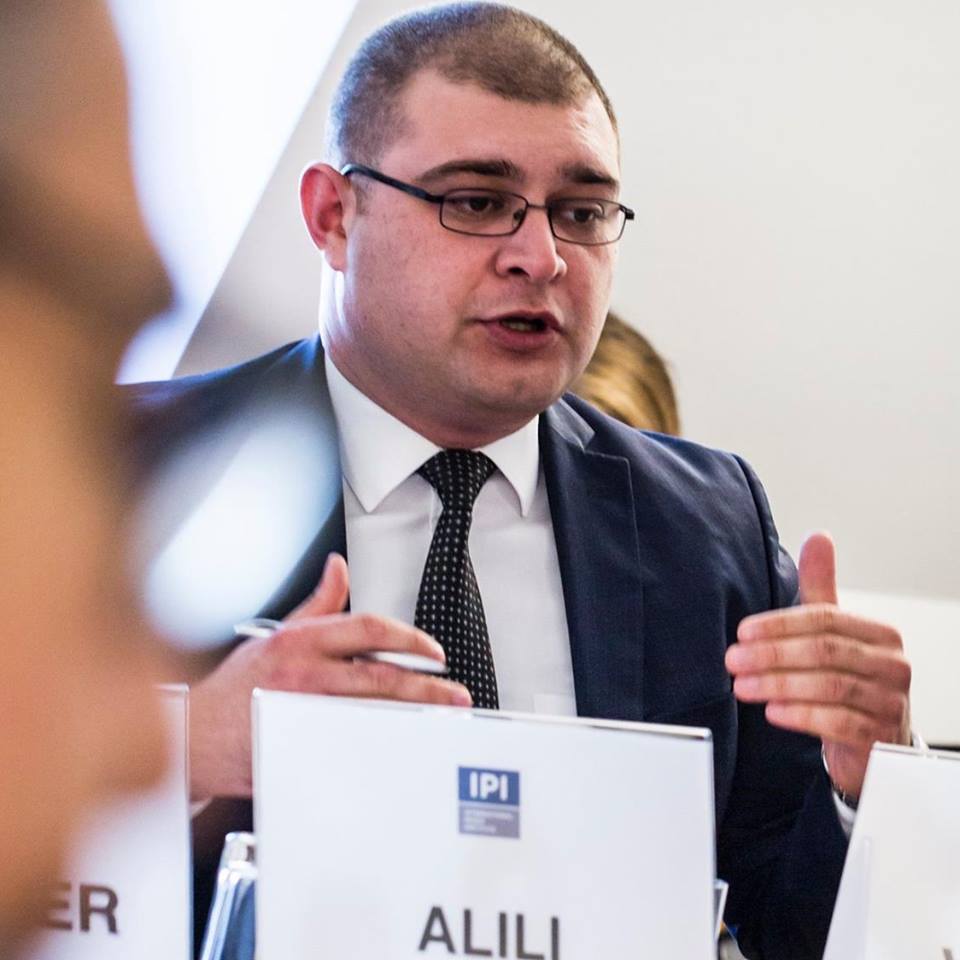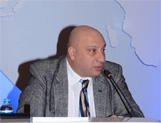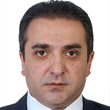
THAAD in Romania: Bucharest on the Moving Sands of Great Powers’ Competition  By George Vlad Niculescu, Head of Research, the European Geopolitical Forum
By George Vlad Niculescu, Head of Research, the European Geopolitical Forum
On 11 April 2019, NATO confirmed US plans to deploy of the Terminal High Altitude Area Defense (THAAD) system to Romania. According to NATO officials, the United States will fulfil its commitment to NATO’s Ballistic Missile Defence by the temporary deployment of a THAAD system to Deveselu in Romania. The scheduled work is part of the United States European Phased Adaptive Approach to ballistic missile defence, which has been implemented since September 2009. In response, Russian Deputy Minister of Foreign Affairs Alexander Grushko said: “Russia is “closely following” the temporary deployment of a THAAD system to the Deveselu base in Romania.” READ MORE.
- EGF Editor |
Published on EGF: 02.05.2019
| Security
-
Can Azerbaijan Afford a Change of Format in the Peaceful Resolution of the Nagorno-Karabakh Conflict?  By Ahmad Alili, Head of Research, Caucasus Policy Analysis Center, Baku
By Ahmad Alili, Head of Research, Caucasus Policy Analysis Center, Baku
Baku softened its rhetoric on Karabakh following the Velvet Revolution in
Armenia. Nikol Pashinyan's statements however have disappointed Baku at a
time when its room for manoeuvre is limited.
For some time over the last months, it was noticeable that the Azerbaijani authorities were being careful in their speeches when commenting on developments with regard to the peaceful resolution of the Nagorno-Karabakh conflict, choosing accommodating rhetoric toward the new government in Armenia. At their first informal meeting in Dushanbe, during the CIS summit in late September, Armenian prime minister Nikol Pashinyan and Azerbaijani president Ilham Aliyev verbally agreed to reduce tensions on the line of contact, including by re-establishing the military-to-military hotline, something which the Azerbaijani side had previously rejected as a measure that strengthened the status quo. READ MORE
- EGF Editor |
Published on EGF: 21.03.2019
| Security
-
Security Trends in the Arctic Region and their Impact on Contemporary World Politics  By Nika Chitadze, PhD, Director, Center for International Studies, International Black Sea University, Tbilisi
By Nika Chitadze, PhD, Director, Center for International Studies, International Black Sea University, Tbilisi
The melting of the Arctic ice cap in combination with developments elsewhere concerning future of energy and military security are creating scenarios that range from low level friction to potential conflict between the Arctic littoral states. Much attention has been devoted to maritime boundary disputes involving the Arctic states: Canada, Denmark, Norway, Russia, and the US. In addition to this, the emerging interest of non-Arctic states in shipping, polar research and non-living resources exploitation also adds uncertain elements to the Arctic geopolitical development. READ MORE
- EGF Editor |
Published on EGF: 23.02.2019
| Security
-
Non-alignment Policy as a Principle of Shaping the National Security of Azerbaijan  By professor Sadi Sadiyev Saleh, War College of the Armed Forces, Republic of Azerbaijan
By professor Sadi Sadiyev Saleh, War College of the Armed Forces, Republic of Azerbaijan
The emergence of a bipolar world and the formation of two military blocks (NATO and the Warsaw Pact) after the Second World War ushered in an intense rivalry between different countries. Finding an effective grand strategy to survive between two hostile powers inevitably requires a balanced policy. In this context, the underdeveloped countries felt the need to join efforts for the common defence of their interests, to strengthen their independence and sovereignty and to express a strong commitment for peace by declaring themselves as “non-aligned” from either of the two nascent military blocks. READ MORE
- EGF Editor |
Published on EGF: 14.02.2019
| Security
-
Armenian-Azerbaijani Talks on Karabakh Appear Positive Even as Conflict Continues to Simmer Underneath  By Eduard Abrahamyan, Wider Black Sea & Central Asia regional security analyst
By Eduard Abrahamyan, Wider Black Sea & Central Asia regional security analyst
The foreign ministers of Armenia and Azerbaijan held four-hour-long consultations in Paris, on January 16, under the auspices of the Organization for Security and Cooperation in Europe’s (OSCE) Minsk Group. The joint statement to come out of the meeting included telling language. In particular, the two sides acknowledged the need for “concrete measures to prepare the populations for peace”. READ MORE
- EGF Editor |
Published on EGF: 14.02.2019
| Security
-
Can Major non-NATO Ally Status Temporarily Solve Georgia’s Security Dilemma?  By Eduard Abrahamyan, Wider Black Sea & Central Asia regional security analyst
By Eduard Abrahamyan, Wider Black Sea & Central Asia regional security analyst
Despite almost two decades of fanfare regarding Georgia’s pursuit to join NATO, the North Atlantic Alliance has yet to adopt a common position on the concrete timeframe of Georgia’s eventual membership. Given NATO’s protracted, uneven handling of Georgia’s enrolment process, might Georgia be better off seeking closer bilateral relations with the United States? READ MORE
- EGF Editor |
Published on EGF: 07.02.2019
| Security
-
Withdrawal of the US Troops from Syria and its Impact on the Security Environment in the Black Sea Region  By Nika Chitadze, PhD, Director, Center for International Studies, International Black Sea University, Tbilisi
By Nika Chitadze, PhD, Director, Center for International Studies, International Black Sea University, Tbilisi
As it is known, US President Donald Trump recently adopted a decision on the withdrawal of about two thousands American military serviceman from Syria. It is possible that one of the main purposes of the American contingent’s withdrawal is the restoration of closer relations between USA and Turkey and the prevention of strengthening cooperation between Moscow and Ankara. READ MORE
- EGF Editor |
Published on EGF: 28.01.2019
| Security
-
Uncertainties and Weaknesses in International Security Around the Black Sea Region  By Eugene Kogan, Tbilisi-based defence and security expert
By Eugene Kogan, Tbilisi-based defence and security expert
It can be ascertained that until the Russian illegal annexation of Crimea, in March 2014, the Black Sea Region was perceived as a region with certain problems, but certainly not of a military nature. As a result, this region was neither high on the international community agenda nor on the radar screen of the NATO member states, and that despite membership of Bulgaria, Romania and Turkey in NATO. Furthermore, Prime Minister Recep Tayyip Erdogan and his government thought back in 2014 that they were capable to handle President Vladimir Putin’s Russia single-handed, NATO assistance was not required, and non-NATO members such as Georgia and Ukraine should not be involved. READ MORE
- EGF Editor |
Published on EGF: 24.01.2019
| Security
-
Ceasefire Violations Down as Armenia and Azerbaijan Implement South Caucasus Study Group Recommendation By EGF Editorial Staff
Since the end of October 2018, a new operative communication line (crisis hotline) has been established between Armenia and Azerbaijan, two countries that have been at war over the status of Nagorno-Karabakh (NK), a region recognized as Azerbaijani by the International Community, but inhabited by a majority Armenian population.
According to official sources from both sides, the level of military tension on the Line of Contact (LoC) between the conflicting parties has significantly decreased (from about 90 reports of ceasefire breaches/day, to about 20 reports/day). The opening of this new communication channel had been agreed several weeks before by the president of Azerbaijan, Ilham Aliyev, and the Prime-Minister of Armenia, Nikol Pashinyan, during an informal meeting held in the margins of the CIS summit in Dushanbe (Tajikistan) on 27-28 September 2018. READ MORE
- EGF Editor |
Published on EGF: 11.12.2018
| Security
-
Armenia’s Unique Geopolitical Reality: An Asset for NATO’s Stability Projection Southwards  By Vahagn AFYAN, Deputy head of Mission, Embassy of the Republic of Armenia to Poland
By Vahagn AFYAN, Deputy head of Mission, Embassy of the Republic of Armenia to Poland
How can Armenia’s geopolitical context contribute to stability in its immediate vicinity and in NATO’s Southern Neighbourhood?
This paper will consider Armenia’s geopolitical location from the perspective of NATO’s Southern neighbourhood and examine its cohesion, dependability and potential contribution to NATO’s intended task of projecting stability. With regard to NATO and its relationship with Armenia, the first step is to create a better understanding of the particularities of the country and its policy. Increased knowledge of the ongoing integration processes affecting various political, economic and military aspects, as well as internal political developments, will allow a full exploration of the potential for strategic partnership between the Alliance and Armenia. READ MORE
- EGF Editor |
Published on EGF: 18.09.2018
| Security
-
